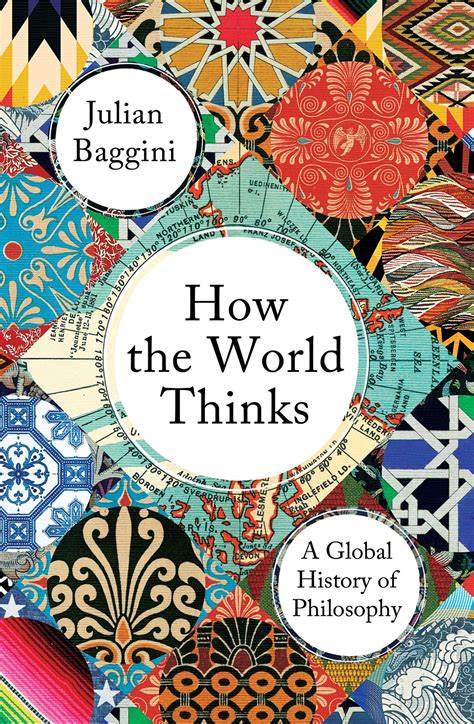How the World Thinks: A Global History of Philosophy
Allen & Unwin
 In this turbulent day and age, the question how the world thinks is an interesting one and Julian Baggini’s endeavour to determine a common denominator behind what fuels beliefs and forges answers to moral questions intrigued me.
In this turbulent day and age, the question how the world thinks is an interesting one and Julian Baggini’s endeavour to determine a common denominator behind what fuels beliefs and forges answers to moral questions intrigued me.
Now, no matter how troublesome things get, the debate around who can lay claim on how to do philosophy properly dates back to ancient times, i.e. orthodox Greeks critiquing that the discipline could have potentially emanated from Egypt or had sources elsewhere. The debate has only intensified over the last five decades with, with one school of thought claiming that philosophy is an exclusively Western phenomenon, which constitutes a borderline imperialistic viewpoint.
What Julian Baggini accomplished with his tome is that he sheds light on intellectual traditions in a chronological manner, which allows for both the luminaries as well as the uninitiated to access essential information as Baggini manages to simmer the essence of conflicting voices down to core arguments.
Not surprisingly, once scales of extreme positioning is stripped away, it becomes transparent that the underlying moral questions are fundamentally congruent between cultures – a conclusion that makes sense if, as Baggini does, philosophy is not approached as a merely academic discipline, but one every individual delves in, with local, societal, cultural and timely contexts being influential factors.
I specifically like how polarities between Eastern and Western approaches are not the end but the starting point for Baggini to eventually arrive at a deeper understanding that distinctions help to determine commonalities and the nuances that come with them.
The book is a written plea for dialogue and a rebalance by sketching the outline of a greater self-consciousness that has a tangible impact on our ethical and moral choices, without denying the existence and necessity of paradoxes.
In simplified punk rock terms, the take away from How the World Thinks is that it is not about where you are from , but where you are at and the need to learn how to become self-aware and willing to enter productive dialogue in a bid to not get caught in myopia.